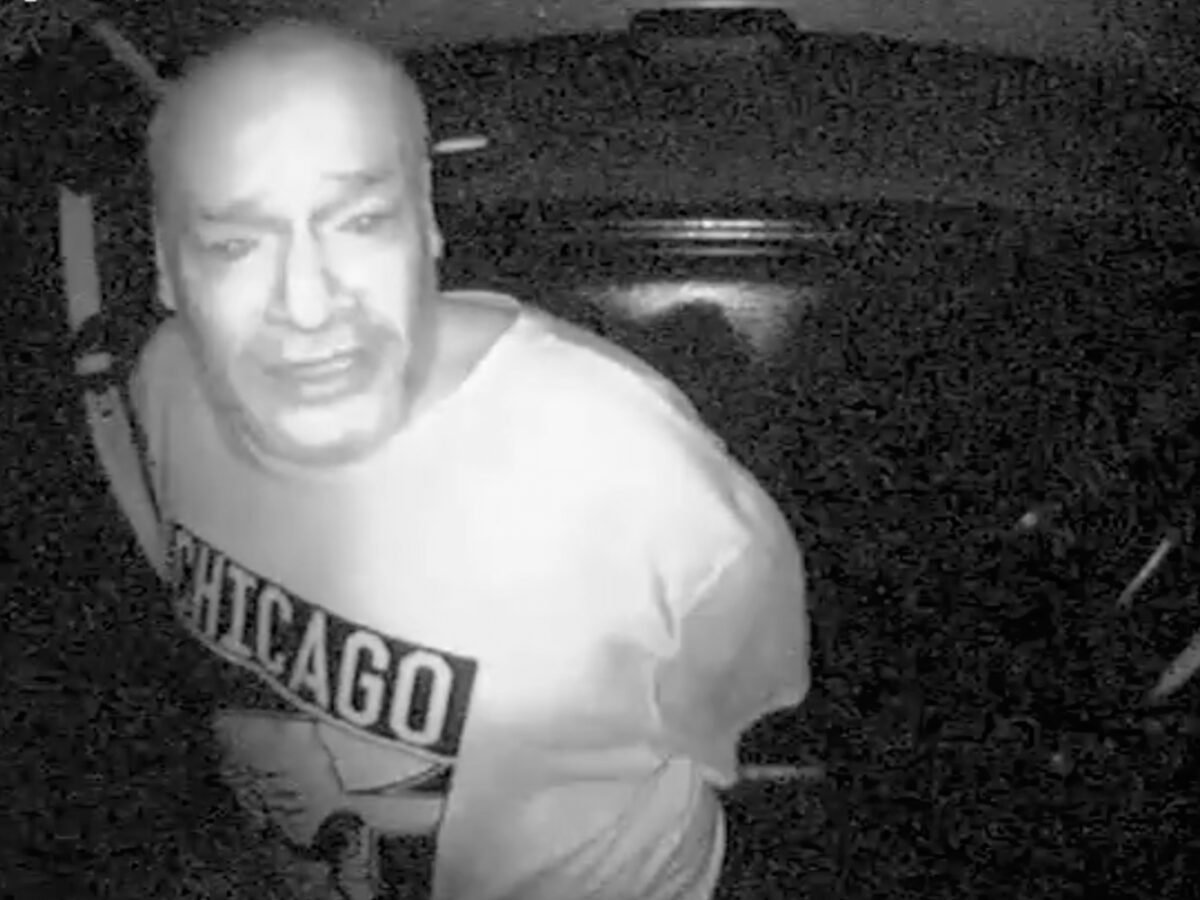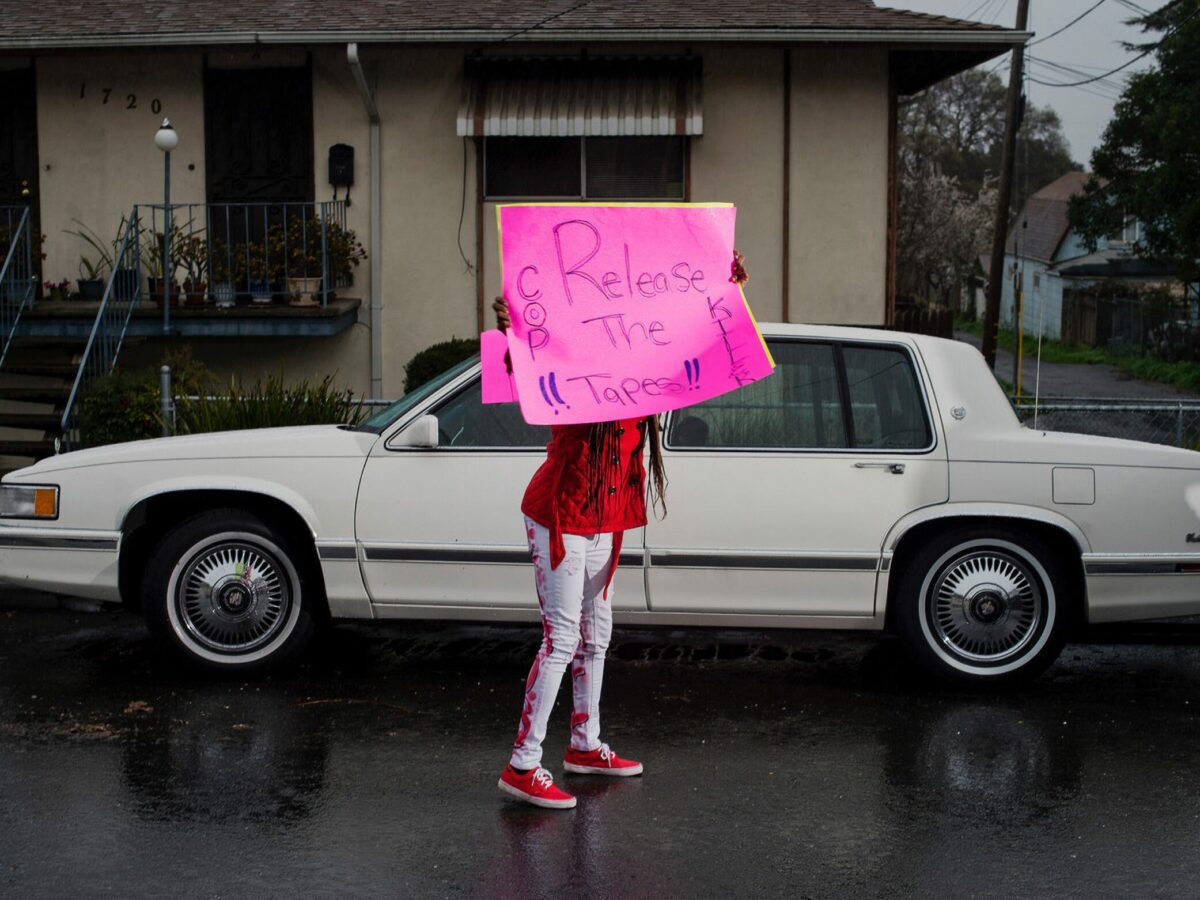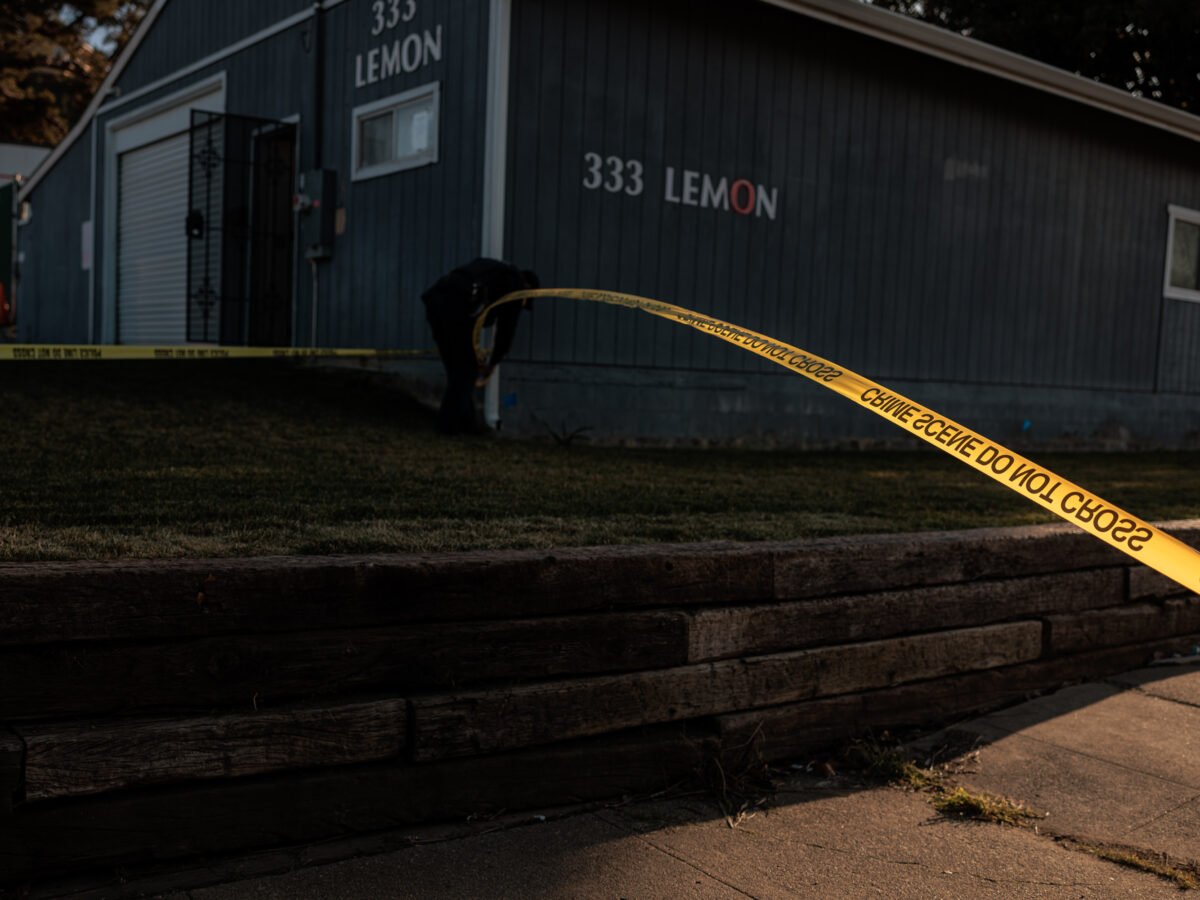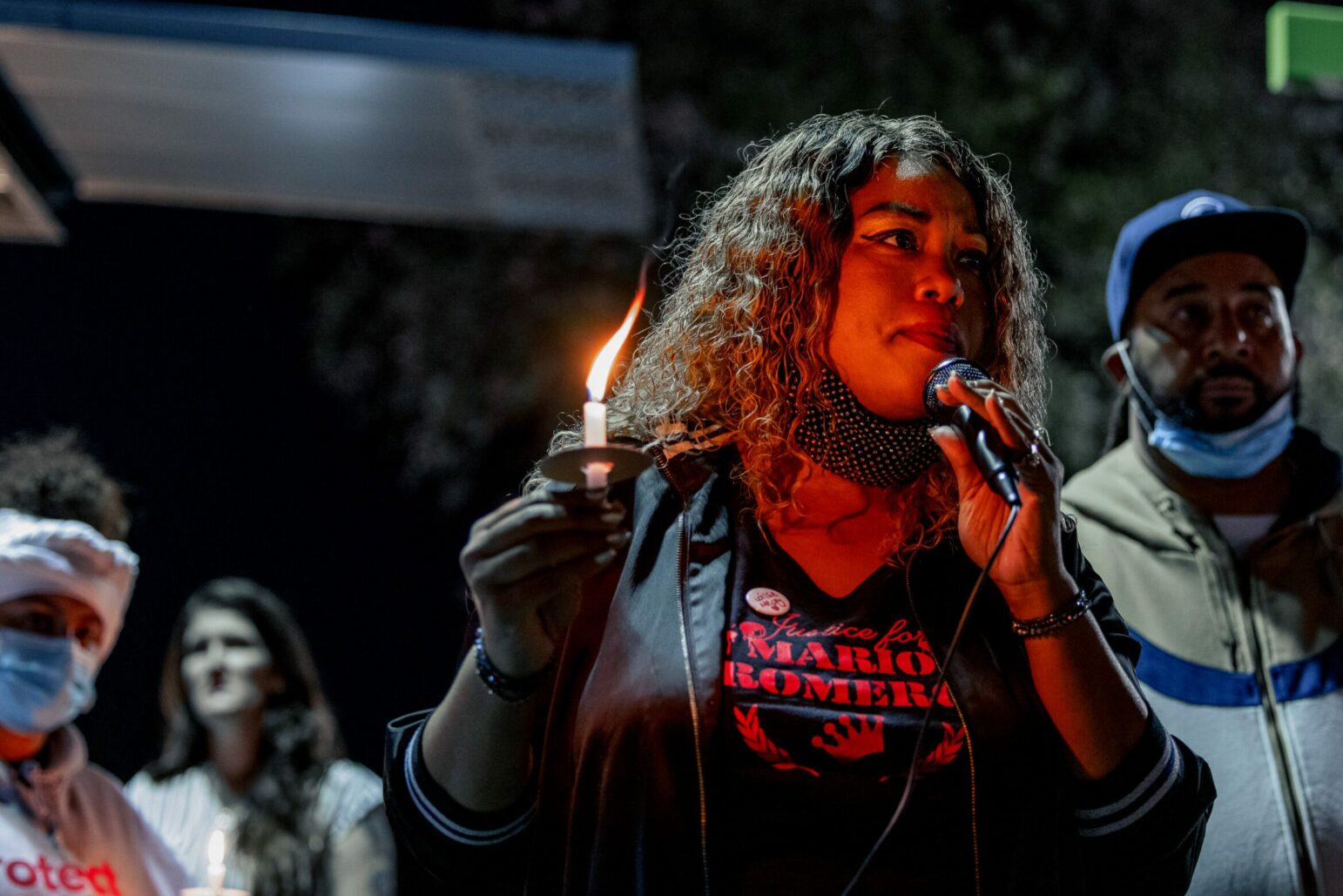
A Solano County judge has ruled in favor of Open Vallejo in a lawsuit over records of Vallejo police violence and misconduct.
In a May ruling, Judge Stephen Gizzi found that the city violated the California Public Records Act when in 2021 officials destroyed evidence in multiple police shootings. Open Vallejo uncovered the purge last year in the course of litigation and subsequently revealed that senior officials for the city had authorized the destruction.
The judge also found that the city’s “clearly unacceptable” four-year delay in producing police records “violates the spirit, intent and terms of the CPRA.”
Judge Gizzi gave the city just over six months to release dozens of hours of video and audio, as well as potentially tens of thousands of pages of documents relating to police shootings and other serious uses of force. He further ordered the city not to destroy any records that are the subject of current public records requests and directed officials to keep the court updated on an ongoing investigation into the records’ destruction.
Spokespeople for the city of Vallejo and the Vallejo Police Department did not respond to requests for comment.
Illegal destruction of evidence
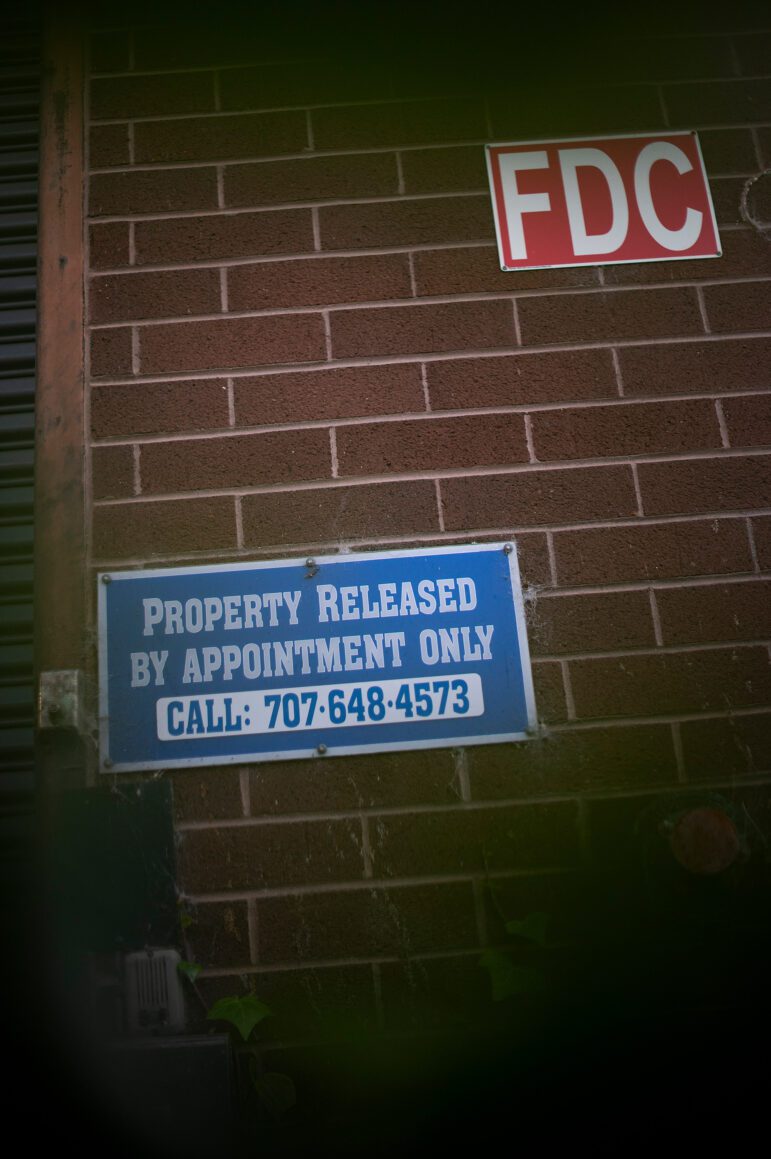
Brian L. Frank / Special to Open Vallejo
The police evidence room in Vallejo, Calif. on Sept. 13, 2022. Credit: Brian L. Frank / Special to Open VallejoOpen Vallejo learned during a deposition last December that Katelyn Knight, the city attorney defending Vallejo in the public records case, authorized officials to destroy evidence in multiple police shootings despite pending requests for the records by this newsroom. Judge Gizzi declined to make a criminal referral, finding there was insufficient evidence to determine whether officials knew about Open Vallejo’s records requests when they initiated the records’ destruction. But the judge indicated a strong interest in the outcome of a third-party investigation launched by the city days after Open Vallejo revealed the illegal purge of evidence.
Gizzi ordered the city to keep him “apprised of the progress and findings” of the investigation, which is being conducted by the law firm Van Dermyden Makus with Boucher Law as legal advisor to the city. The judge ordered officials to provide a copy of the final report “as soon as it becomes available.” As a court record, the report would be subject to disclosure to Open Vallejo, and potentially the public. However, the city and its outside counsel consider the investigation confidential and protected by the attorney-client privilege, records show, raising a potential conflict over access to the documents. (Attorneys for Open Vallejo have repeatedly sought clarification from the city about whether it will seek to block disclosure of the report, but have received no response.) Neither Knight nor the outside law firms responded to requests for comment.
Generations of police violence
The records Judge Gizzi ordered disclosed span two decades of violence by the Vallejo Police Department, one of the most lethal law enforcement agencies in California, according to the Police Scorecard. They are likely to shed new light on incidents that have remained buried for years as the department finds itself under increased scrutiny by the state attorney general.
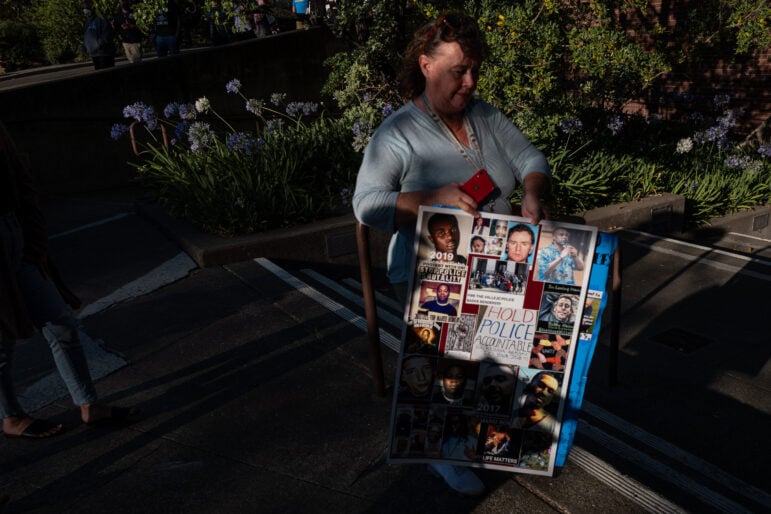
Geoffrey King / Open Vallejo
Vallejo resident Bridget Doherty holds a homemade sign commemorating individuals killed by Vallejo police outside Vallejo City Hall on July 12, 2022. Credit: Geoffrey King / Open VallejoThe records to be released do not include records involving juveniles, which Judge Gizzi ruled are exempt from disclosure.
Since March 2019, Open Vallejo filed 28 requests for public records at issue in the lawsuit, Judge Gizzi found. But the city failed to provide complete records or clear answers to those requests, at times engaging in what appears to be bureaucratic gamesmanship, the complaint alleges.
Starting in the Spring of 2021, Open Vallejo staff and four paid interns from the UC Berkeley Graduate School of Journalism began cataloging, coding and organizing thousands of pages of records disclosed by the city to date. Totaling hundreds of hours, this work allowed Open Vallejo to identify gaps in the city’s disclosures. On Sept. 13, 2021, Open Vallejo filed its lawsuit, which does not seek money damages.
Open Vallejo is represented through the Protecting Journalists Pro Bono Program, a joint initiative of the Reporters Committee for Freedom of the Press, Microsoft, and the law firm Davis Wright Tremaine.
The city eventually produced approximately 14,700 pages of records and photographs and 3,300 minutes of video and audio files relating to 66 separate incidents, according to Judge Gizzi’s ruling. The records documented key details relating to the Vallejo police killings of Sean Monterrosa in 2020, Willie McCoy in 2019, and Ronell Foster in 2018, among other incidents, which resulted in news coverage by this and other newsrooms. But the city continued to withhold records, including after Open Vallejo identified specific documents it had discovered were missing from the disclosures.
Judge Gizzi gave Vallejo until Nov. 30 to produce all disclosable records requested by Open Vallejo. The judge also ordered the city to search for and produce records relating to older incidents, which the city had sought to avoid.
“City’s response is to be provided commencing immediately and then on a rolling basis until completed,” the judge wrote. “City’s failure to meet this deadline will be deemed a violation of a Court Order, for which contempt charges may be brought, and a daily fine imposed.”
The city of Vallejo has not disclosed additional records since the court’s May 5 ruling.

